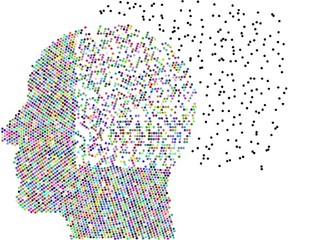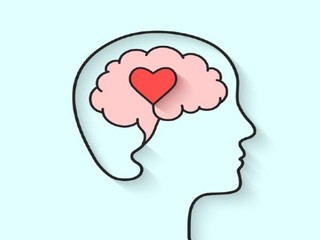DUOS expands AI capabilities to help seniors apply for assistance programs
It will complete and submit forms, and integrate with state benefit systems
Read more... There have been no shortage of mental health apps gaining traction, and funding, over the last couple of years: the space brought in over $5 billion globally across 324 deals in 2021, a 139% increase year-to-year. People are gravitating toward these apps, especially in the wake of COVID, which ushered in a new wave of apps that allow people to access care wherever they are, whenever they want.
There have been no shortage of mental health apps gaining traction, and funding, over the last couple of years: the space brought in over $5 billion globally across 324 deals in 2021, a 139% increase year-to-year. People are gravitating toward these apps, especially in the wake of COVID, which ushered in a new wave of apps that allow people to access care wherever they are, whenever they want.
Now that we're a couple of years into this new phase of mental health digitization, it's a good time to do a deeper dive into these apps and whether or not they are actually giving consumers what they desire, and what they need.
The answer is mixed: according to a new study, consumers rated the effectiveness of these apps lower than the clinicians and academics who recommend them, yet many patients still say the apps have helped improve their mental health.
"As the number of mental health apps has grown, increasing efforts have been focused on establishing quality tailored reviews. These reviews prioritize clinician and academic views rather than the views of those who use them, particularly those with lived experiences of mental health problems," the study says.
"Given that the COVID-19 pandemic has increased reliance on web-based and mobile mental health support, understanding the views of those with mental health conditions is of increasing importance."
The study recruited individuals who had experienced mental health problems and asked them to download and use three apps for three days. Those users were asked to complete a survey consisting of open-ended questions, which were then compared with app ratings given by professionals and star ratings from app stores.
The surveys, administered between December 2020 and April 2021, assessed 11 mental health apps in all, Breethe, Calm, Headspace, Insight Timer Meditation, MindDoc, MindShift, Reflectly, Remente, Sanvello, Self-Help for Anxiety, and Woebot, and found that there was disagreement between participants and professionals in more than half of the app ratings.
While professionals gave the apps an overall star rating of 4.56, participants rated them almost an entire star lower, at 3.58. Not only that, but while physicians gave the apps a recommendation rating of 4.39, participants have them a rating of 3.44, again nearly an entire star lower.
Part of the problem stemmed from a disconnect between the two groups, the study's authors wrote, and the fact that "participants particularly valued certain aspects of mental health apps, which appear to be overlooked by professional reviewers."
The most notable of these aspects was cost: when asked, “what did you like the least about this app?” the most common answer was a frustration with hitting a paywall after using the app's freemium version, and not being able to try out premium features before paying for them. Participants also said that there were too many ads on the free versions of these apps, and that there were asked to upgrade to premium too often, which participants found “excessive” and “would ruin the flow or calm I had going.”
The highest number of participant negatives, though, came from when users were asked if there were any parts of the app that they found confusing or difficult to use, with users pointing in particular to frustration with apps loading slowly, as well as glitches that caused them to lose their work and progress. This, the authors said, "suggests that current professional ratings are overestimating the ease with which the apps can be used."
Despite all of this, when asked about the impact of the apps on their well-being, users still gave the apps high marks, with many saying it helped them “feel significantly less anxious.”
What this study shows overall, according to the authors, is that reviews from professionals and on the app store "are insufficient for mental health app users to make informed decisions based on the aspects of apps that are important to them," which is even more important because of COVID-19 and its impact on mental health.
The solution, they wrote, is to get more actual users to review these apps, to give prospective users a better idea of if the app will work for them.
"As reviews on app stores and by professionals differ from those by people with lived experiences of mental health problems, these alone are not sufficient to provide people with mental health problems with the information they desire when choosing a mental health app," the study concluded.
"App rating measures must include the perspectives of mental health service users to ensure ratings represent their priorities. Additional work should be done to incorporate the features most important to mental health service users into mental health apps."
(Vator will be holding its Future of Behavioral and Mental Health event in October with speakers that include Russ Glass from Headspace Health; Steve Gatena from Pray.com; Ben Lewis from Limbix; Rebecca Egger from Little Otter; Divya Shah from Meta, and others. Register here to buy your ticket)
(Image source: gadgethacks.com)
It will complete and submit forms, and integrate with state benefit systems
Read more...The bill would require a report on how these industries use AI to valuate homes and underwrite loans
Read more...The artists wrote an open letter accusing OpenAI of misleading and using them
Read more...

